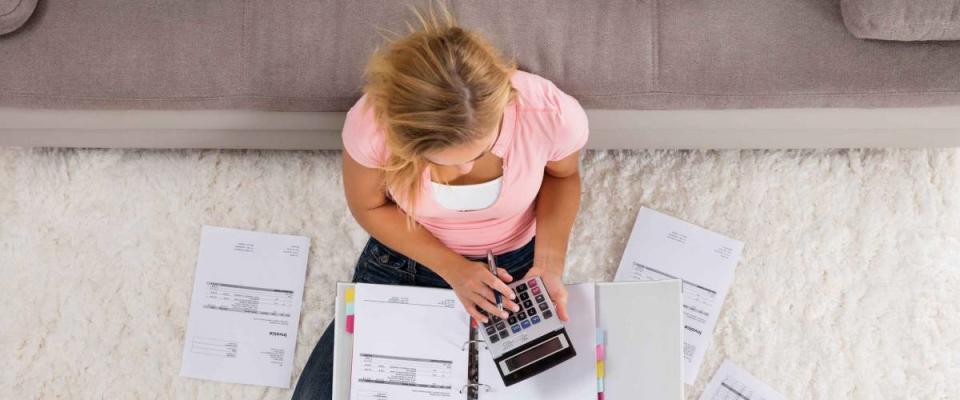Paying your taxes with a credit card: Is the convenience worth the cost?

Research shows that in the last few years about 19% of American taxpayers claim they received an unusually large tax bill. And for many people, the amount owed at the time of filing can be more than they can pay by this year’s May 17 deadline.
The average tax bill is $6,078, based on the most recent IRS filing statistics. However, 2 in 5 U.S. taxpayers aren’t confident they could pay a $3,000 tax bill without using a credit card or borrowing money, according to data published by American Institute of CPAs in December 2020.
If you already have high credit card balances, it may be a better idea to roll all of your bills, including your tax bill, into a lower-interest debt consolidation loan.
Paying your tax bill with a credit card does have some benefits, like avoiding steep IRS interest rates, but there are also some downsides.
What it costs to pay with a credit card

First things first: There’s a processing fee involved. The Internal Revenue Service (IRS) allows you to pay through one of these three processors — PayUSAtax, Pay1040 and ACI Payments, Inc. — and they charge between 1.96% to 1.99% on top of your owed taxes when you pay with a credit card.
You can check out the price breakdown for each processor on the IRS page for paying your taxes with a credit or debit card.
You might also be able to pay your taxes with a credit card through tax preparation software, but the processing fees are higher. For example, TurboTax charges 2.49%.
For a tax bill of $6,078 through the IRS with the cheapest processor, PayUSAtax, you’ll be charged a fee of 1.96%, or $119.13. If you go through TurboTax, however, this fee goes up to $151.34.
Keep in mind that not all states allow you to pay state taxes with a credit card and the requirements and fees may differ.
When it’s a good idea

There are situations where it can be beneficial to pay your taxes with a credit card — it all comes down to the rewards your issuer may offer and whether the benefits outweigh the added cost of the processing fees.
If you use a rewards credit card, you can stock up on points and redeem them toward airfare and hotels or cash back. Or, you might earn a welcome bonus for spending a certain amount on a new card within a specified timeframe. You can also apply for a balance transfer card that offers 0% APR for the first 12 or 18 months. But make sure to pay off the balance before that period ends and the interest rate goes up.
You’ll accrue interest through the IRS when you don’t pay your taxes in full after the due date and that compounds daily. So it might make sense to pay off your taxes with a credit card if it has a lower interest rate that will give you a little breathing room.
If getting a new credit card or using an existing one isn’t an option, consider applying for a lower-interest personal loan and see if that interest rate is lower than the one your credit card has.
When it’s a bad idea

It only really makes sense to pay your taxes with a credit card when you stand to benefit from it, so you need to decide for yourself whether the risks are really worth it.
If you’re paying with a credit card that won’t get you much in rewards, compared to the fee you’re paying to process it, then no, it’s probably not a good idea. And if you don't qualify for a lower-interest balance transfer card, then you might be better off with one of the IRS’s payment plans or a loan.
It’s also important that you’re able to pay your balance in full each month or you’ll risk racking up interest and fees and damaging your credit score.
You won’t be able to take advantage of any of the IRS’s payment plans once you’ve paid through your credit card either, which can help you tackle your tax debt through monthly installments.
Ways to help pay off your taxes or credit card

Review your insurance rates. If you want to make some room in your monthly budget, consider revisiting your insurance rates. Shop around and compare quotes online to try and find a better rate for your car insurance or your home insurance.
Refinance your mortgage: If you’re a homeowner, it might be time to look around for a lower rate on your home loan. Mortgage rates remain historically low and you could save hundreds of dollars on your monthly payments by refinancing.
Bundle up your debt: Get a handle on your credit card debt and pay it off faster by applying for a lower-interest debt consolidation loan instead of trying to keep track of multiple card payments at once.
Put your spare change into an investment portfolio. If you are new to investing in the stock market, start small and invest your spare change with a beginner-friendly service.

 Yahoo Finance
Yahoo Finance 